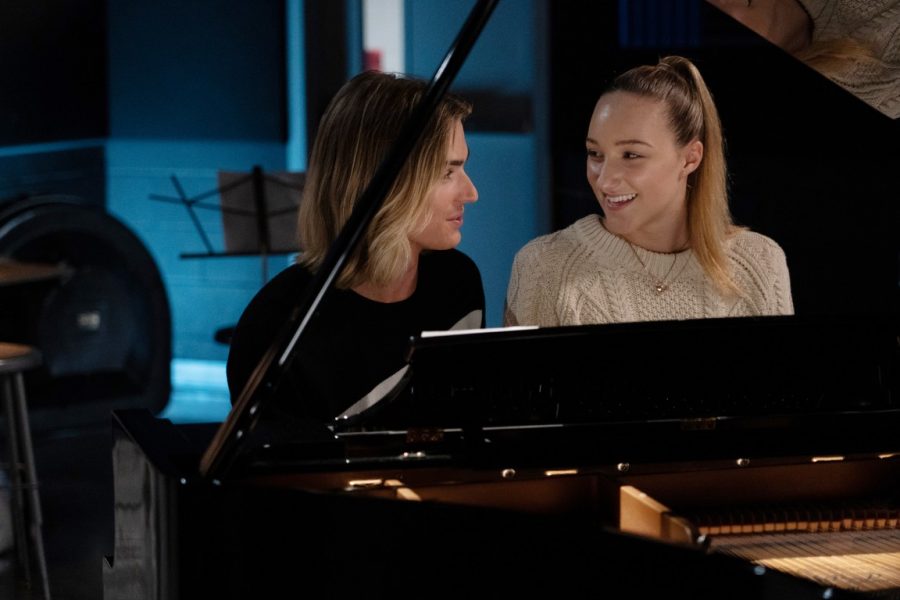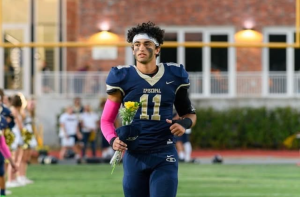Film Column: Another predictable teen film has a message that falls short
September 25, 2019
Netflix announced their latest venture into original filmmaking, “Tall Girl,” with a trailer at the end of August, which immediately sparked controversy on social media sites like Twitter. Netflix conveyed being tall as the worst thing that can happen to a person, and users were quick to respond. Mentioning their own afflictions, such as having life-threatening illnesses or being discriminated against as minorities, Twitter users promptly addressed the challenge to “beat that” that the main character, Jodi, gives the audience about the challenges of her height.
The plot follows Jodi, a 6-foot-tall high school junior, who has to navigate the ins and outs of romantic life as experienced in the world of teenagers. Not only is this theme played out, but the characters felt stiff and stereotypical while highlighting conventional beauty standards and leaving much to be desired in terms of substance. Though the concept loses points for creativity, it sounds harmless on the surface.
While Jodi continues to struggle with being “the tall girl,” she enlists her ultra-polished suburban mother and literal beauty queen older sister to help her. This makeover implies to young girls and women that more makeup, better hair and new clothing will automatically make them a person people will like better.
To make matters worse, this sudden need for change is brought on by her desire to catch the eye of the school’s new Swedish exchange student. There is nothing wrong with the desire to change nor with a teenager having a crush on somebody, but exploiting a change in the protagonist’s appearance to catch the attention of a boy is a little behind the times for a movie in 2019. Not only does this convey that women must make themselves more desirable but it tells the (young) audience that Jodi’s height is not her only physical ‘flaw’ about which she should be worrying. Giving Jodi a makeover to look more like her ‘perfect,’ popular older sister takes away from the struggle with her height and insinuates that her entire appearance leaves something to be desired.
The central plot which follows Jodi’s journey to self-acceptance is overshadowed by the one which focuses on her relationship with the too-good-to-be-true foreign exchange student that must be her perfect match because he, too, is tall. The idea that a heterosexual woman’s partner must be taller than her is a damaging and persistent one.
While Jodi’s love interest Stig aids her in her self-acceptance, he also promotes the idea that Jodi needs validation from an outside source rather than herself. As he continuously snubs her for his mature-looking girlfriend, portrayed by a 22-year-old actress, traditional beauty standards continue to be perpetuated.
The movie is clearly directed toward a pre-teen to young adult demographic – those who are young enough to overlook the blatant stereotypes and uninspired writing. Movies like this tend to become fan favorites or fall into obsolescence, and this movie will likely end up in the latter category. Instead of self-love and personal validation, the focus ends up being on a jumble of selfish teenagers all caught up in their intertwined love triangles.
A film marketed as a journey of self discovery turned into another over-dramatic narrative that strays from the intended message and is cliche in all the wrong ways. This movie could have offered a much more powerful perspective about the trials of being different, but instead made it easy to disregard the message and concentrate on the more trivial aspects.










